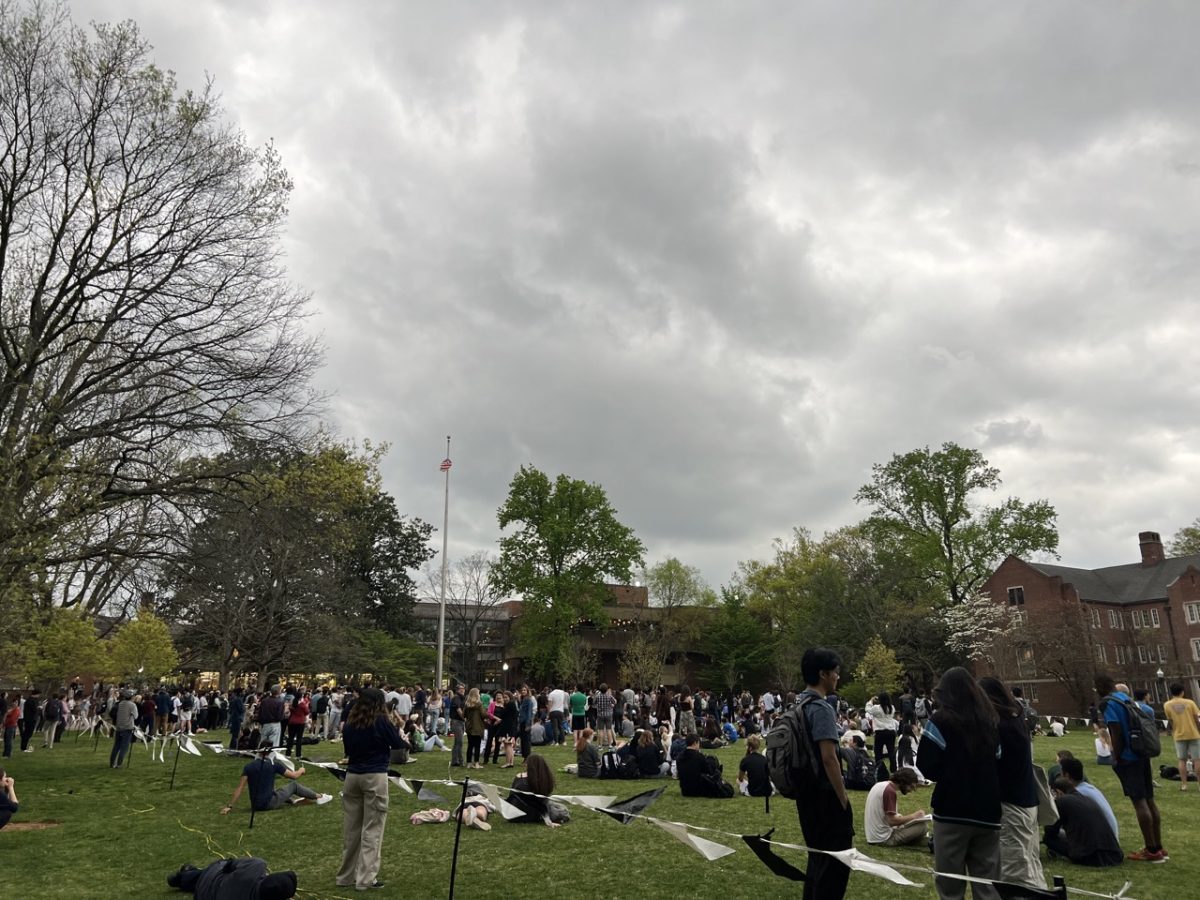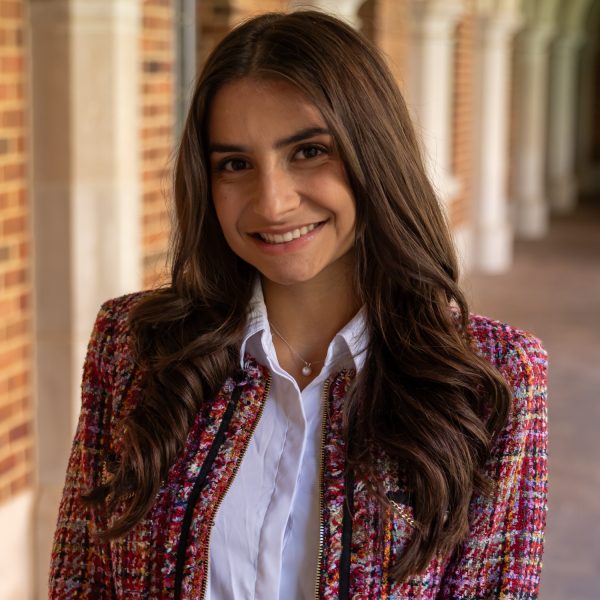Vanderbilt professors and students gathered on campus lawns armed with blankets and eclipse glasses to admire the solar eclipse on April 8. The near-total eclipse was visible in Nashville from 12:44-3:20 p.m. CDT.
The eclipse peaked in Nashville at 2:04 p.m. CDT when the moon covered 95% of the sun. While clouds covered much of the sky during the eclipse, the astronomical wonder could still be seen intermittently peaking through the clouds.
Eclipse glasses were available in Munchie Marts for free on the morning of April 8, but Campus Dining began charging $1.99 for a pair at around 11:30 a.m. CDT. Nearly all Munchie Marts sold out of the glasses by noon on April 8. Glasses were also free at the Recreation and Wellness Center on the morning of April 8 and at the Vanderbilt Dyer Observatory on April 5.
In anticipation of the eclipse, the Dyer Observatory held a “Meet the Astronomer” event and a live talk with Dyer Observatory Director Dr. Billy Teets on March 28, a solar eclipse open house at the observatory on April 5 and a free solar eclipse information session in the Williamson County Library on March 13.
Staff members from the Dyer Observatory traveled to Harrisburg, Ill., to view the total solar eclipse visible there, while some students reported traveling to Kentucky to do the same.
The next eclipse visible in Nashville — a partial penumbral lunar eclipse — will occur on Sept. 18, 2024, followed by a total lunar eclipse on March 14, 2025.
Krisha Shah and Kennedy Ho, both seniors, watched the eclipse on Alumni Lawn starting at around 1:50 p.m. CST. Shah is a former Hustler staff writer.
It was Shah’s first time seeing a solar eclipse, but she watched a lunar eclipse two years ago from Highland Quadrangle. She said the clouds did not stop her from enjoying the “beautiful” eclipse, noting that it became particularly visible at around 2:15 p.m. CST.
“I think it started off being a little underwhelming. I wasn’t quite sure what to expect,“ Shah said. “I kind of liked that it was cloudy because it kept coming back and going away — it was pretty fun.”
Ho described how watching the eclipse with classmates and professors on the lawn made it special compared to his experience watching the solar eclipse in 2017. He added that some of his friends’ professors canceled class to allow students to watch the eclipse. Other professors held eclipse viewing parties or paused classes for students to view the eclipse.
“This one was cool because everyone was out [on the lawn], and people would start yelling, and then everyone would look up,” Ho said.
Shah echoed Ho and stated that witnessing the eclipse as a senior was bittersweet.
“It was really nice to see everyone out. As a senior, I started feeling a little nostalgic. I’m going to miss this,” Shah said. “The environment was really fun.”
Ho stated that, at first, eye strain did not occur when viewing the eclipse without eclipse glasses due to the clouds. However, Shah described her eyes needing to adjust to the indoors after watching the eclipse.
“My eyes are definitely suffering the consequences [of watching the eclipse],” Shah said.



